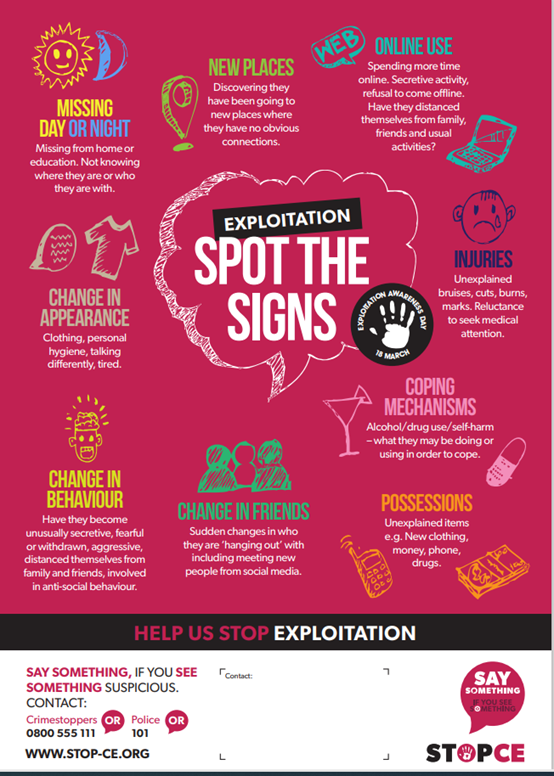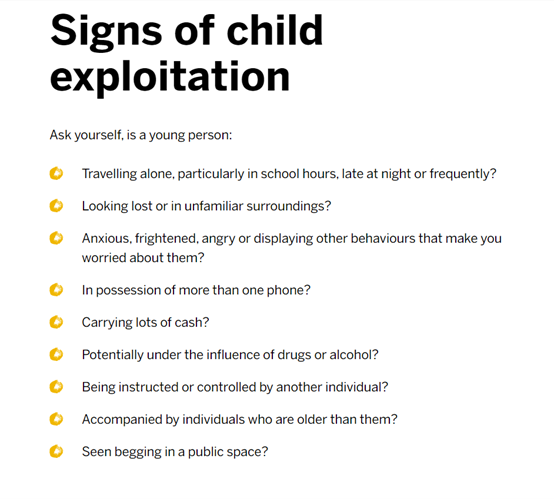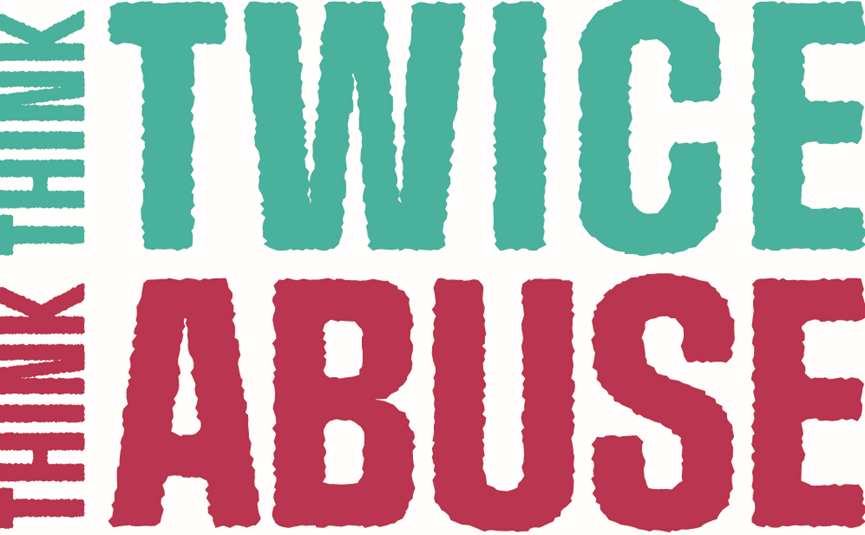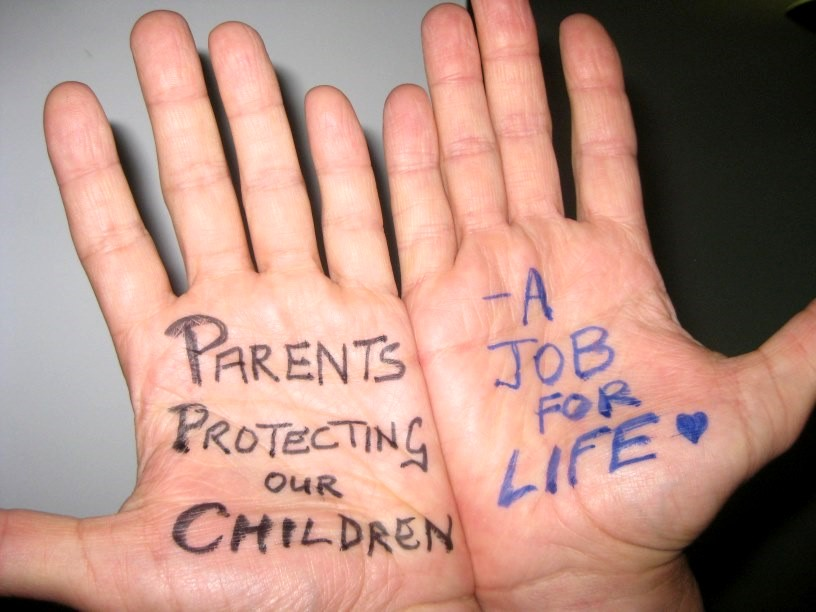Think Twice Think Abuse – National Child Exploitation (CE) Awareness day 2024
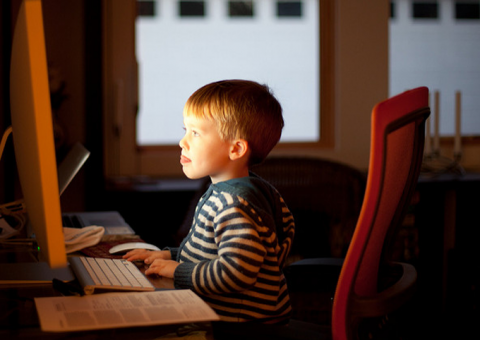
18th March is National child exploitation awareness day #CEADAY2024.
Think, spot and speak out against abuse and adopt a zero tolerance to adults developing inappropriate relationships with children or children exploiting and abusing their peers.
Any child can be exploited. Help to improve the chances of young people being heard and to deter sexual predators and criminal activity through awareness of child exploitation – Say Something if You See Something.
What is child exploitation?
- Exploitation is about more than just Child Sexual Exploitation (CSE), think about criminal exploitation, county lines, trafficking, and modern slavery
- Exploitation is abuse and children can’t consent to their exploitation.
- Perpetrators groom individuals who are vulnerable. Grooming is where someone builds a relationship with a child (online or offline) to manipulate them.
What are the signs of exploitation?
The look closer campaign (#Lookcloser) seeks to raise awareness of the signs and how to report them.
Other signs, depending on the type of exploitation could include:
- Being subject to threats, blackmail and violence (linked to their own safety or safety of friends and/or family)
- Being forced to commit crimes
- Not being able to leave a gang
- Risk of physical harm, emotional harm and/or sexual abuse
- Frequently going missing from home, school or care
- Significant decline in school results or performance
- Significant changes in appearance or mental health
- Travelling to places they have no obvious connections with
- Unwillingness to explain their whereabouts
- Receiving excessive calls or texts at all hours of the day
Real life stories
Trigger warning – these stories contain a personal account of exploitation and may cause distress.
What can you do?
- We need to disrupt perpetrators through any means possible, don’t place the burden on victims to disclose to us
- Think, spot and speak out against abuse – think twice think abuse and say something if you see something
- Recognise and respond to all forms of exploitation
- Challenge the language of exploitation – humanise where language has sought to dehumanise the child/young person
- Look at the bigger picture and see beyond a child’s behaviour. Don’t see the child/YP as the problem, fixate on their behaviour or punish them – talk to them to understand their problems and see their needs
- Get to know children and families for who they are, not what’s happening to them
- Listen, care and safeguard. Don’t blame, don’t judge
- Children and families need you to believe them
- Understand that victims are never to blame
- Take time to build relationships with children and families – it’s crucial
- Involve children and young people in decision making, it’s their life
- Create safe spaces
- A good relationship with a professional is the best resource a child (and family) can have
- Forming lasting relationships are the key to supporting exploited victims
- Build on families and communities’ strengths
You can also take a look at these helpful guides designed to support parents and carers.


